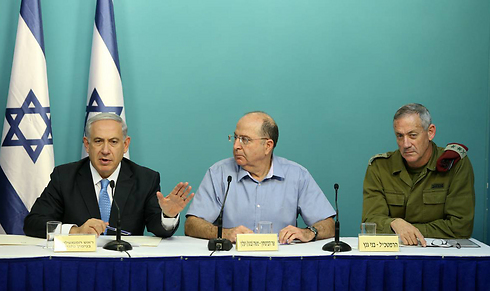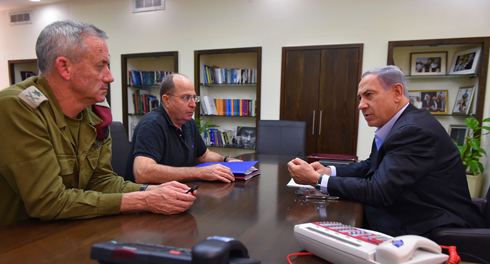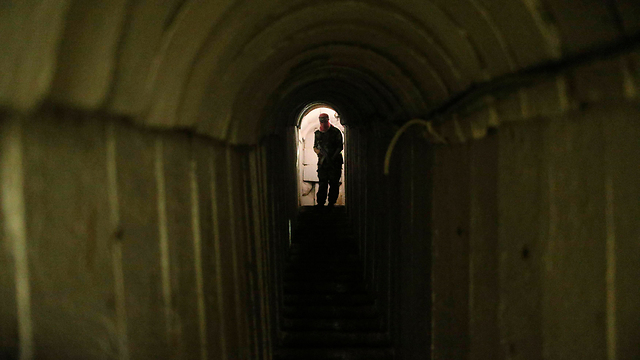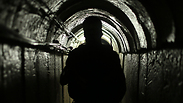

State Comptroller: Cabinet ministers were not sufficiently updated on tunnel threat
In report on Operation Protective Edge, Comptroller Shapira reprimands PM Netanyahu, then-Defense Minister Ya'alon, then-IDF chief Gantz and other defense officials for failing to give cabinet ministers the intelligence and background they needed to make informed decisions during the 2014 war in Gaza, while at the same time failing to ensure the IDF was prepared to face the tunnel threat.
"The general statements made in Security Cabinet meetings did not reflect the severity and development of the attack-tunnel threat, as they were known to the prime minister and the defense establishment," Yosef Shapira wrote in his report on Operation Protective Edge, which was released on Tuesday afternoon.
The comptroller's investigation found that significant information necessary to the Security Cabinet ministers to make decisions in an optimal manner was not presented to the ministers in a satisfactory manner during the discussions that preceded Operation Protective Edge.
Such information includes intelligence regarding strategically significant hostile activity planned in the Gaza Strip against Israel, the significant gaps in intelligence at the time concerning the Gaza Strip, and the limitations of aerial attacks in the Gaza Strip.
The comptroller noted that such information was available to Netanyahu, Ya'alon, Gantz and the heads of Israel's intelligence community—then-Military Intelligence Directorate head Aviv Kochavi and then-Shin Bet director Yoram Cohen.
According to the comptroller's report, by the outset of Operation Protective Edge, the Security Cabinet had 33 meetings dealing with Gaza. At times, the comptroller found, defense officials failed to present ministers with significant information they needed to understand the bigger picture—even if at times this was not done with the intention to withhold this information. According to the comptroller, this created a significant gap in the ministers’ knowledge.
The comptroller further found that the tunnel threat—which Netanyahu and Ya'alon both defined as a strategic and significant threat—was not presented to the Security Cabinet in great detail, but only in a few general statements as stand-alone sentences during Security Cabinet discussions. This, Shapira noted, was not enough to make the ministers aware of the full extent and severity of the threat.
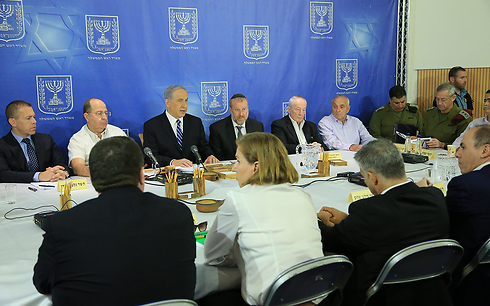
The ministers were only able to understand the full nature of the threat following information they received on June 30, 2014—about a week before the launch of Operation Protective Edge—and in another Security Cabinet meeting in early July.
The comptroller noted that when the tunnel threat was mentioned in Security Cabinet meetings, the ministers did not express interest in it, did not seek elaboration on the matter, and did not ask the IDF to present them with operational plans to handle the threat.
Neither Netanyahu, Ya'alon or Gantz ensured the IDF was prepared to fight in a battle field filled with tunnels and deal with them while fighting. Plans to that end, the comptroller noted, were expected in the event the IDF entered the Gaza Strip, as such an operation could also serve as an opportunity to deal with the threat, which at the time did not have other satisfactory solutions.
The tunnel threat
The state comptroller notes in his report that despite the fact the prime minister discussed the tunnel threat with defense officials, who defined it as a significant and strategic threat, the threat was not presented to the Security Cabinet in great detail. Furthermore, ministers were not provided with military intelligence reports on the topic, leaving them with an incomplete intelligence picture.Representatives from the IDF and the Shin Bet, the former national security advisor, Ya'alon and Netanyahu made a few general statements about the tunnel threat but did not describe its full extent, its development and the gaps in intelligence vis-à-vis this threat in a way that would emphasize the significance of the threat.
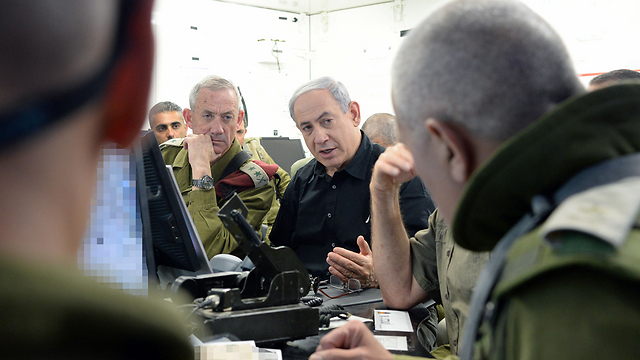
The ministers were only made aware of the severity of the threat in discussions on June 30 and in early July. During that meeting in late June, on the eve of the operation, Minister Naftali Bennett asked to see the plans to destroy the tunnels, leading Netanyahu to instruct Ya'alon to present such plans.
The comptroller asserted that Ya'alon, Gantz, then-IDF Operations Directorate chief Maj. Gen. (res.) Yoav Har-Even, and even Netanyahu should have made sure the IDF had operational plans to deal with the tunnel threat, as they "knew, in 2013 at the latest, the full severity of the tunnel threat and the possible meanings of that threat."
Immediately after the operation, Minister Gilad Erdan said that "if a topic like the border-crossing tunnels is one we need to pay heed to, then it shouldn't just be mentioned... the topic should be put on the agenda and be presented with all of the meanings and threats it entails to the Security Cabinet."
Former Minister Yair Lapid supported Erdan’s statement, saying that Security Cabinet members were not aware of "the entire problem of the tunnels."
The comptroller said the comments made by the two ministers were in line with the findings of his investigation.
Shapira reprimanded Ya'alon, Gantz, Kochavi and Har-Even for failing to provide the Security Cabinet ministers with a detailed presentation of the developing tunnel threat until early July 2014. At the very least, the comptroller said, Gantz and Kochavi should have suggested to Ya'alon that he recommend to the prime minister and the national security advisor raising the issue in the relevant Security Cabinet discussions and allocating appropriate time to these discussions.
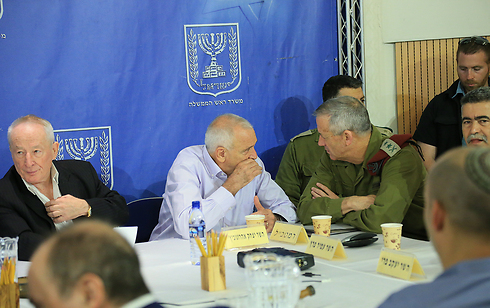
Former National Security Advisor and current Mossad director Yossi Cohen was also reprimanded for not suggesting to Netanyahu to raise the topic in greater detail in Security Cabinet meetings at the appropriate time so the ministers could understand the meanings of the threat as early as possible.
Shapira emphasized that due to the fact that military intelligence reports were not distributed to the ministers, and due to the massive amounts of information on the topic, there is an even greater importance on the IDF suggesting to the defense minister to present these topics during discussions. This ensures that the ministers have been updated and understand the relevant information.
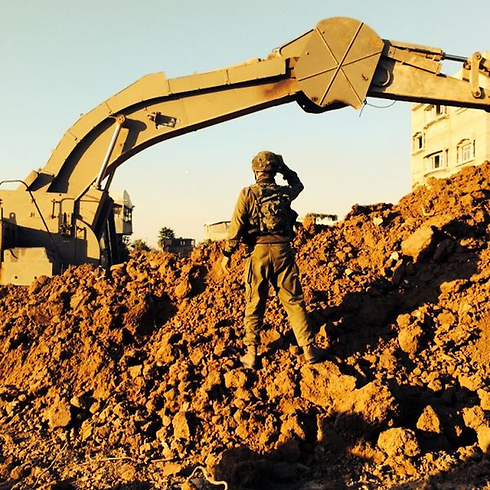
Failing to appropriately present the threat, the comptroller wrote, hurt the necessary base of knowledge cabinet ministers must have to make decisions regarding the Gaza Strip. Ya'alon, he noted, should have insisted the IDF presented the threat in detail to the cabinet, as he is the minister in charge of the military.
The question of the Security Cabinet's authorities
In a chapter dealing with the decision-making process in the Security Cabinet, the comptroller notes an exchange between Netanyahu and then-Foreign Minister Avigdor Lieberman during a Security Cabinet meeting on July 8, 2014, when the ministers were asked to approve the IDF to continue its activity in Gaza."The defense minister and I are authorized by law to do whatever we want anyway," Netanyahu is quoted as telling the Security Cabinet.
Later during the same meeting, Lieberman inquired, "We do we even have to come out with a decision?"
"We're not coming out of here with any decision; we're not releasing any statements. We merely need a legal framework for the operation," Netanyahu replied.
A week later, during a different Security Cabinet discussion on July 15, 2014, Netanyahu said: "I will ask the Security Cabinet to convene if we're going to launch a ground operation... otherwise I don't need to convene the Security Cabinet."

The comptroller noted that Netanyahu's exchange with Lieberman, as well as his later statement, indicate ambiguity concerning the Security Cabinet’s role and authorities. On the one hand, the prime minister and defense minister have the legal authority to act without the Security Cabinet's approval, while on the other hand the Security Cabinet's decision is needed for a legal framework. This, the comptroller noted, raises the need to clarify in legislation what are the Security Cabinet's authorities and when it must be convened.
The comptroller quotes Lieberman, who said regarding this issue that "a decision-making process does not exist in the State of Israel... the discussions in the Security Cabinet are to 'blow off steam.' Every discussion begins with the attrition stage, which entails hearing long reviews by the IDF that last for hours. Then the defense minister talks, and later every minister talks with no point. There is no agenda to the meeting, and the meeting’s objectives are not clear from the start."
Lapid said in his testimony that “the main issue is that the cabinet’s work has not been defined. It’s unclear whether it is an advisory body or a deciding body.” Former Public Security Minister Yitzhak Aharonovich said that “most of the decisions are already made among the IDF and the prime minister and defense minister even before the cabinet is convened.” Erdan told the State Comptroller’s team that “it’s unclear whether the prime minister has a duty to share certain information with the cabinet.”
Netanyahu made it clear to the comptroller’s team in July 2015 that “the cabinet has to make the main decisions. Its job is not to manage the war and the micro-tactics. Not everything was brought to their decision, and rightfully so.” The prime minister added that some of the ministers “may have a wrong expectation or understanding of the cabinet’s job.”
The comptroller criticized the fact that in June 2014, the ministers were not presented with significant information regarding the IDF's operational plans for the Gaza Strip, despite the fact these plans were defined as "leading deterrence" by IDF chief Gantz. The ministers were briefed on these plans only in early July 2014, when military intelligence upgraded the plans to "deterrence." Had these plans been executed, the comptroller noted, it would have very likely led to escalation in the Gaza Strip.
Without this information, the comptroller wrote, the ministers were unable to take part in the decision-making process, leaving it to the prime minister and the defense establishment.
The comptroller stressed that it is vital for government ministers, and particularly members of the Security Cabinet, to expand their knowledge on issues relating to national security, as decisions made in these issues are critical for the State of Israel. The lack of knowledge, the comptroller added, makes it harder on the ministers, with the exception of the defense minister who is constantly exposed to such information, to discuss the issues and raise relevant questions and, as a result, make informed decisions.
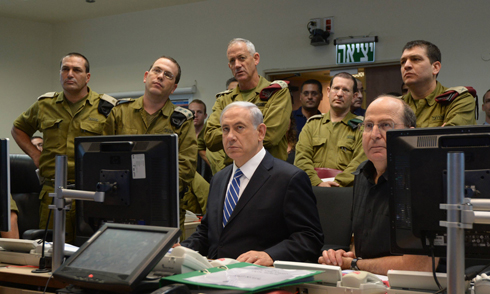
In his response to the comptroller, Ya'alon criticized the Security Cabinet ministers for not doing their own part to stay informed. "Each and every one of the Security Cabinet members has a personal obligation to 'build his strength' to become fit for his role and the responsibility placed upon him," the former defense minister said. "The Security Cabinet members did not act as such. The Security Cabinet is not a 'members’ club.' It obligates its members to invest the required time in discussions, in reading and studying the materials, in meetings and in tours."
However, before Operation Protective Edge, Security Cabinet ministers did not have access to some of the background information they were required to know because these materials were marked as classified. They received these reports at the beginning of the Security Cabinet meeting and required to return them at the end of the meeting. All Security Cabinet ministers, with the exception of Ya'alon, claimed they lacked the necessary background information for the discussions at the Security Cabinet, leaving them insufficiently prepared.
In this context, Minister Erdan is quoted in the report lamenting the fact that "There is a situation here of built-in inferiority of some of the ministers in their ability to prepare, to take in information during the discussion, to process it and eventually reach conclusions."
Meanwhile, former minister Lapid said that he "expects the National Security Council to prepare background information for Security Cabinet ministers to prepare them ahead of a discussion."
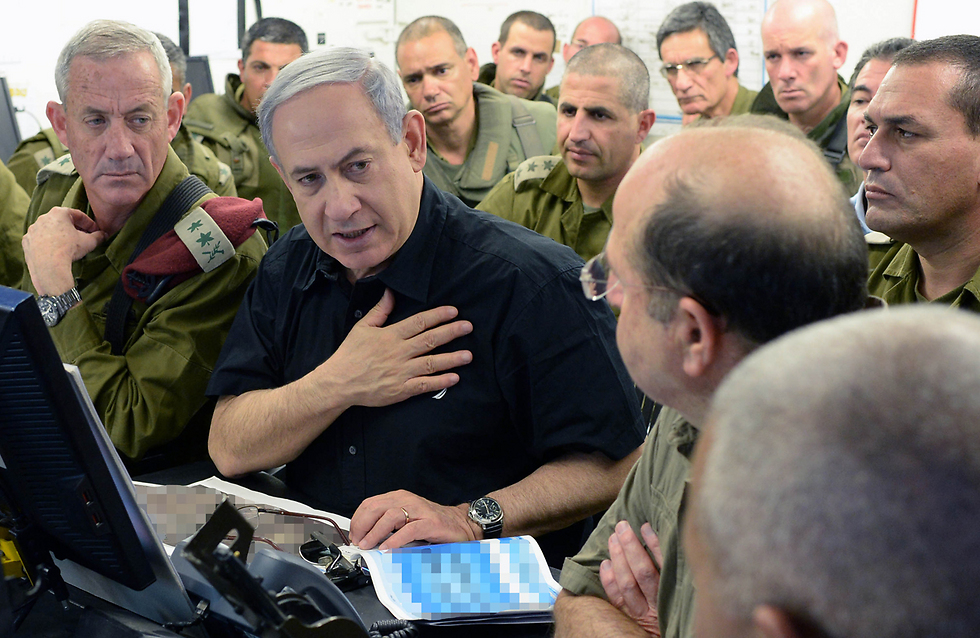
According to Minister Lieberman, "We can come to the National Security Council and read materials ahead of Security Cabinet discussions there, but that's not practical for a minister who is busy with his ministry's business full time."
Former Justice Minister Tzipi Livni noted that "When we receive summons from the National Security Council, the topic under discussion is not listed and we do not even receive an outline for the discussion."
Minister Bennett added to this, saying that "during Security Cabinet discussions, the IDF uses unclear terms. Furthermore... the IDF doesn't always reveal all of the relevant information necessary to make decisions in the Security Cabinet."
The comptroller also reprimanded the prime minister and former national security advisor Yossi Cohen for focusing Security Cabinet discussions on operative plans without having set strategic goals for the engagement in Gaza. Shapira noted that even without instruction from Netanyahu or an initiative by the National Security Council, Ya'alon should have suggested to hold such discussions.
Furthermore, the comptroller rebuked Netanyahu for rejecting diplomatic alternatives in Gaza without even presenting them to the Security Cabinet , which in turn prevented the ministers from considering these alternatives and discussing the chances and risks they entail. One example he brings up is a discussion held on March 23, 2014, which only dealt with the degrees of military force to be used against Hamas. This, Shapira noted, despite the fact that a Security Cabinet discussion was held a year prior to that concerning Gaza's serious infrastructure problem, including the potential dangerous ramifications this could have on Israel.














